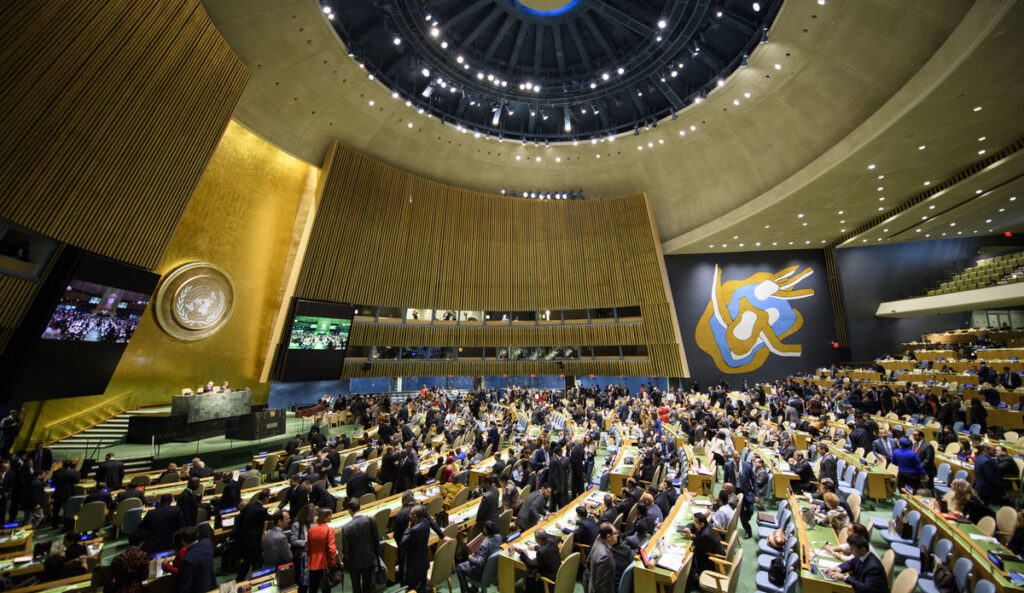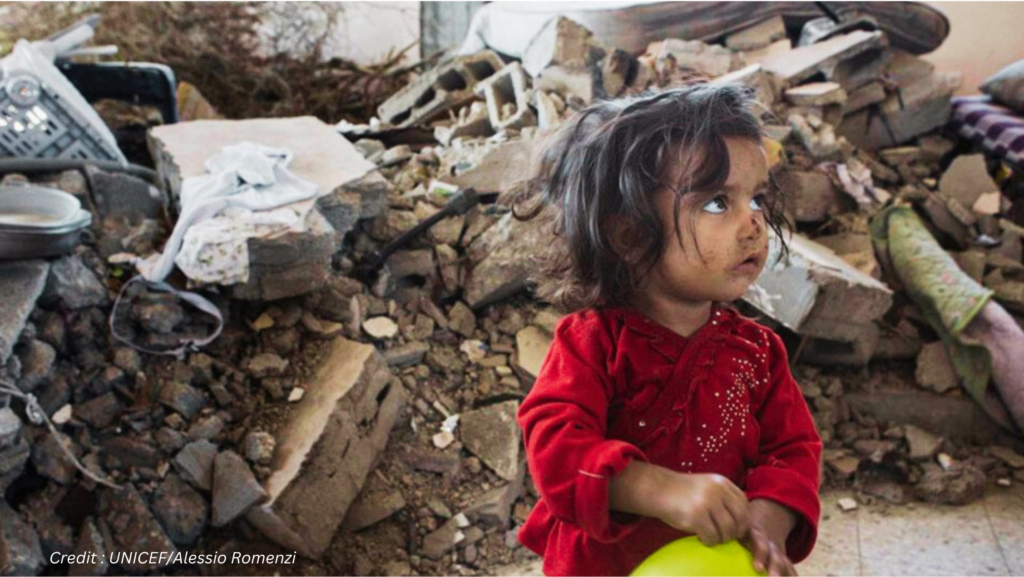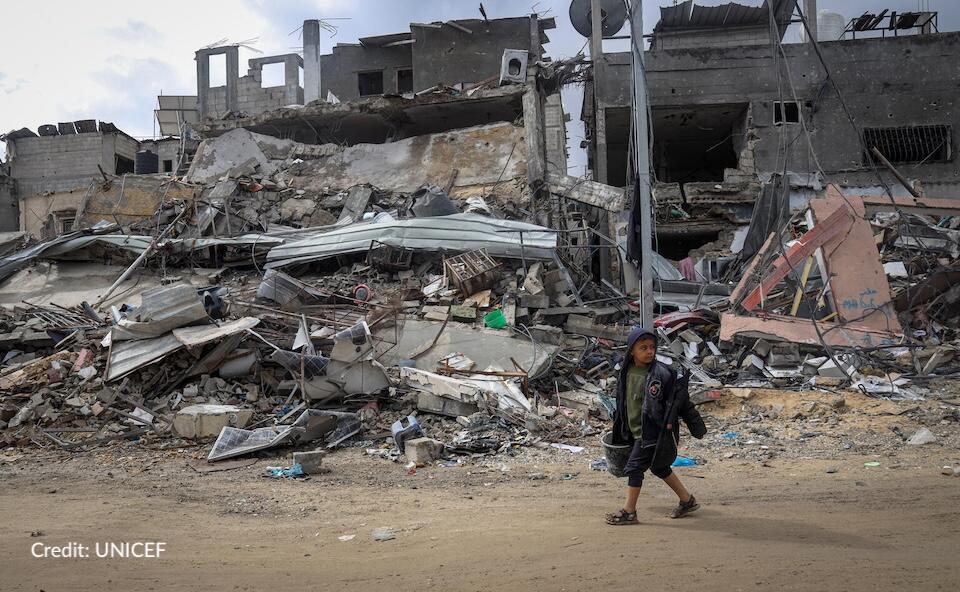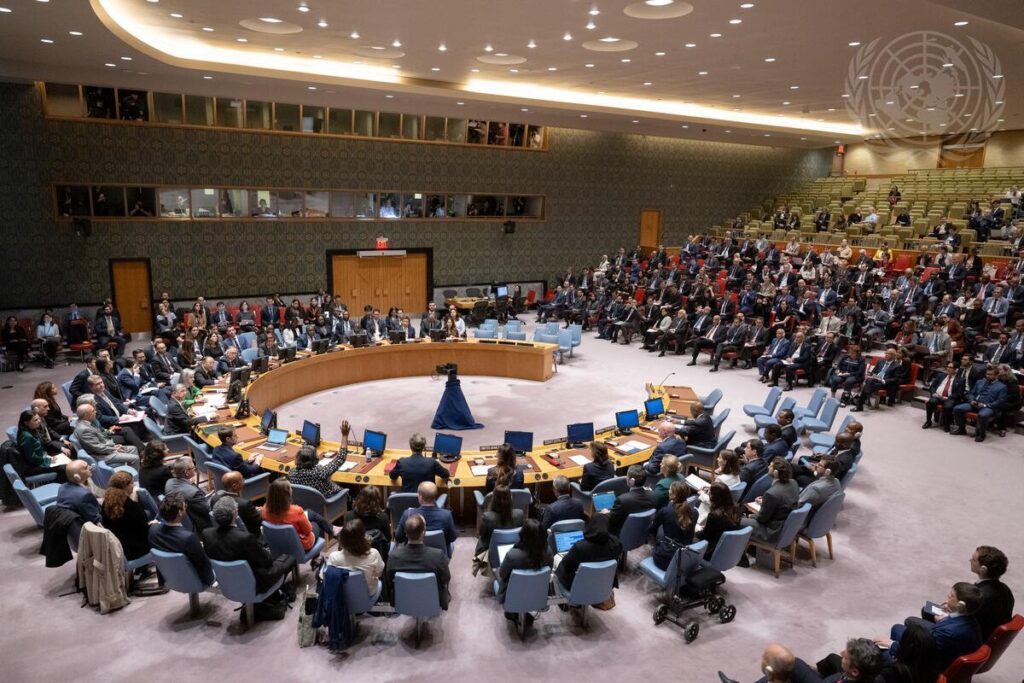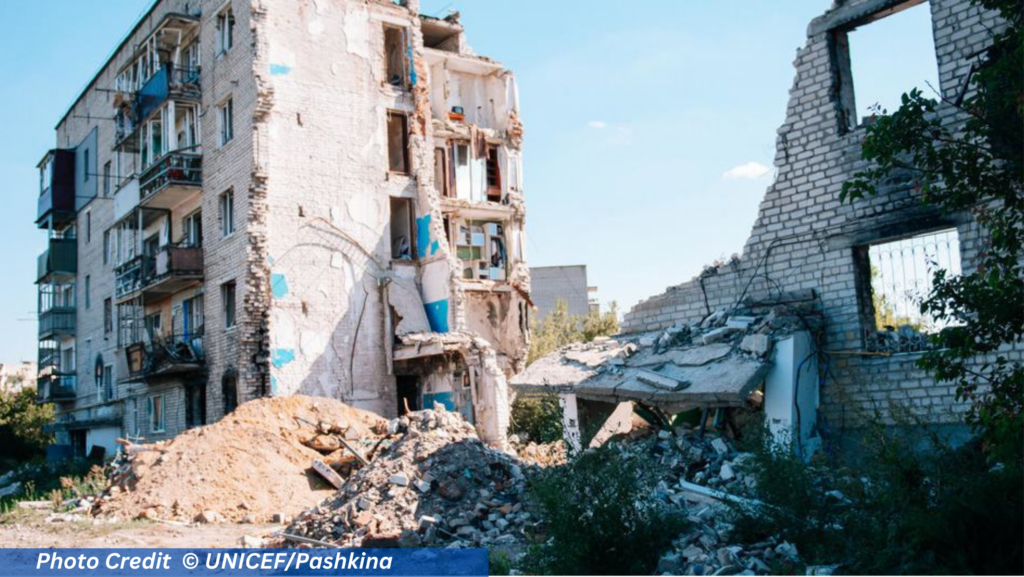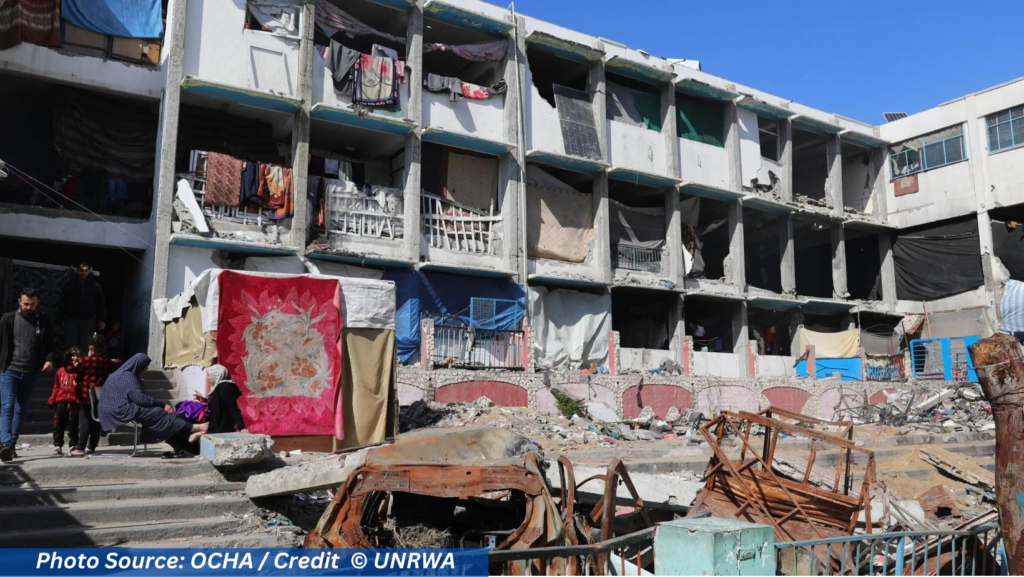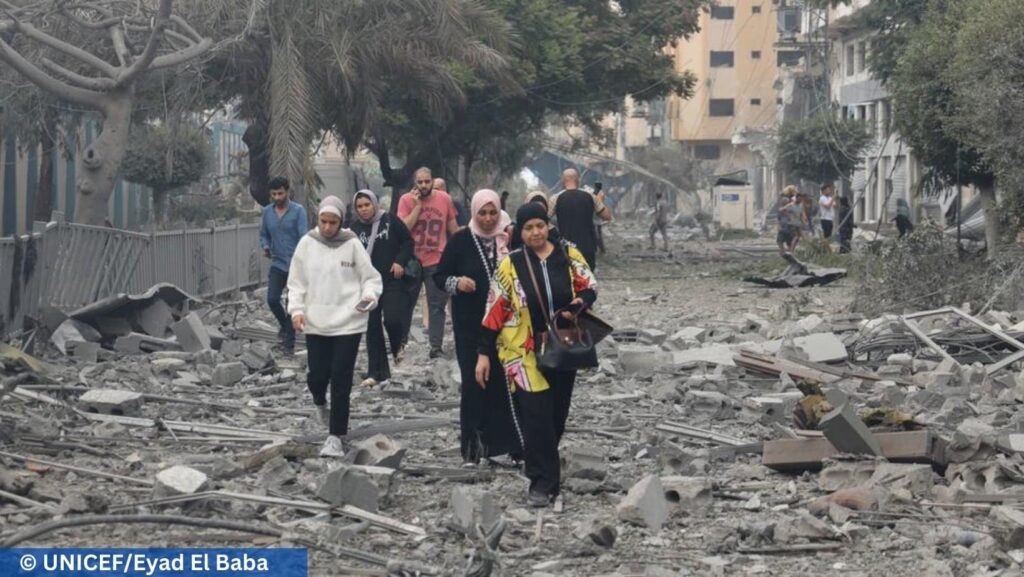UN supports Ukraine’s demand for Russia to withdraw troops, a peaceful resolution of the 3-year-old war
New York, February 24, 2025 – The UN marked the third anniversary of the war in Ukraine with its two main bodies – the General Assembly and Security Council – holding discussion and votes on resolutions that called for an end to the war.
The assembly voted to support a European Union-backed Ukrainian resolution that demanded an immediate, complete and unconditional withdrawal of Russian troops from Ukraine as the war in that country entered a fourth year.
However, the 193-nation assembly dismissed the brief resolution submitted by the United States, which said, “The General Assembly, Mourning the tragic loss of life throughout the Russian Federation-Ukraine conflict, Reiterating that the principal purpose of the United Nations, as expressed in the Charter of the United Nations, is to maintain international peace and security and to peacefully settle disputes, Implores a swift end to the conflict and further urges a lasting peace between Ukraine and the Russian Federation.”
The assembly adopted the Ukrainian text with a 93-18 vote while 65 countries abstained. The resolution called for a “de-escalation, an early cessation of hostilities and a peaceful resolution of the war against Ukraine.” It said the war resulted in enormous destruction and human suffering, including among the civilian population.
It reiterated “the urgent need to end the war this year, and to redouble diplomatic efforts to reduce the risks of further escalation and achieve a comprehensive, just and lasting peace in Ukraine, consistent with the UN Charter, including its principles of sovereign equality and territorial integrity of States.
It recalled “the need for full implementation of its relevant resolutions adopted in response to the aggression against Ukraine, in particular its demand that the Russian Federation immediately, completely and unconditionally withdraw all of its military forces from the territory of Ukraine within its internationally recognized borders, and its demand for an immediate cessation of the hostilities by the Russian Federation against Ukraine, in particular of any attacks against civilians and civilian objects.”
UN Secretary-General Antonio Guterres issued a statement reminding that the war was caused by Russia’s full-scale invasion of Ukraine.
“Monday 24 February marks three years since the Russian Federation launched its full-scale invasion of Ukraine, in clear violation of the United Nations Charter and international law,” Guterres said.
“On this tragic occasion, I reaffirm the urgent need for a just, sustainable and comprehensive peace – one that fully upholds Ukraine’s sovereignty, independence and territorial integrity within its internationally recognized borders, in accordance with the UN Charter, international law, and resolutions of the General Assembly.
“Eighty years after the end of the Second World War, the war in Ukraine stands as a grave threat not only to the peace and security of Europe but also to the very foundations and core principles of the United Nations.
“Enough is Enough. After three years of death and destruction, I once again call for urgent de-escalation and an immediate end to the hostilities. I welcome all efforts towards achieving a just and inclusive peace. The United Nations stands ready to support such efforts.”
Filippo Grandi, UN High Commissioner for Refugees, said one third of the current Ukrainian population are in desperate need of humanitarian aid.
“Their plight should be uppermost in everyone’s minds, even as political events take centre stage.”
Grandi said about 10.6 million people have been forced from their homes, seeking safety either within Ukraine or abroad. “Most fled during the terrifying early stages of the Russian invasion, but massive and incessant aerial attacks continue to kill, injure and displace people every day. In the last six months alone, more than 200,000 people have been evacuated from frontline areas in the east and north,” he said. Grandi said the relentless attacks on critical civilian infrastructure, including energy plants, have left many without heat and electricity. More than 2 million homes across the country – 10 per cent of the housing stock – have been damaged or destroyed.
The UN said the war in Ukraine has killed more than 12,000 civilians and injured more than 20,000 others.
United Nations journalists – United Nations journalists – United Nations journalists
United Nations News – United Nations News – UN Correspondents Association – UNCA Awards

